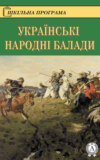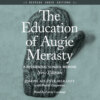Kitabı oku: «Betty Leicester: A Story For Girls», sayfa 4
VII.
THE SIN BOOKS
One morning Betty was hurrying down Tideshead street to the post-office, and happened to meet the minister's girls and Lizzie French, who were great friends with each other. They seemed to be unusually confidential and interested about something.
"We've got a secret club and we're going to let you belong," said Lizzie French. "Where can we go to tell you about it, and make you take the oath?"
"Come home with me just as soon as I post this letter," responded Betty with great pleasure. "Do you think my front steps would be a good place?"
"It would be too hot; beside, we don't want Mary Beck to see us," objected Ellen Grant, who was the most pale and quiet of the two sisters. They were both pleasant, persistent, mild-faced girls, who never seemed tired or confused, and never liked to change their minds or to go out of their own way. Usually all the other girls liked to do as they said, and they were accordingly very much pleased with Betty, apparently because she hardly ever agreed with them.
"Let's go to walk, then," said Betty.
"I'll tell you what we'll do," Lizzie Grant said in a business-like tone. "Let's go down the old road a little way, toward the river, and sit under the black cherry-tree on the stone wall; you know how cool it is there in the morning? I can't stay but a little while any way. I am going to help mother."
Nobody objected and away they went two by two. Evidently there was serious business on hand, which could by no means be told lightly or without some regard to the surroundings.
"Now what is it?" demanded Betty, when they had seated themselves under the old black cherry-tree; but neither of the girls took it upon her to speak first. "I promise never, never to tell."
Mary Grant took a thin, square little book out of her pocket, half of a tiny account book of the plainest sort, and held it up to Betty so that she could see the letters S. B. C. on the pale brown pasteboard cover. It certainly looked very interesting and mysterious. "We thought that we would admit another member," said Mary; "but it is a very difficult thing to belong, and you must hold up your right hand and promise on your word of honor that you will never speak of it to any girl in Tideshead."
"I may have to speak of it to papa. I always tell papa if I am not quite certain about things. He said a great while ago that it was the safest way. I mean I am on my honor about it, that's all. He never asks me." Betty's cheeks grew red as she spoke, but she did speak bravely, and the girls were more impressed than ever by the seriousness of the club.
"I don't believe that she will have to tell him, do you, girls?" Lizzie French insisted. "Any way we want you to belong, Betty. You be the one to tell her, Mary."
"It is a society to help us not to say things about people," said Mary Grant solemnly, and Betty Leicester gave a little sigh of relief. She thought that would be a most worthy object, though somewhat poky.
"We have made a league that we will try to break ourselves of speaking harshly and making fun of people, and of not standing up for them when others talk scandal. There, you see this book is ruled into little squares for the days of the week, a month on a page, and when we get through a day without saying anything against anybody we can put a nice little cross in, but when we have broken the pledge we must mark it with a cipher, and then when we are just horrid and keep on being cross, we must black the day all over. Then once a week we have to show the books to each other and make our confessions."
"Wouldn't it be splendid, if we could have a whole week of good marks, to wear a little badge or something?" proposed Lizzie French.
"Oh Lizzie! we never can, it will be so hard to get through one single day," Betty answered quickly. "I should just love to belong, though; I am always saying ugly things and being sorry. What does S. B. C. mean? How did you ever think of it?"
"The Sin Book Club," Ellen Grant explained. "Mary and I heard of one that our cousin belonged to at boarding-school. She said that it took weeks and weeks for some of the members to make one good mark, but after you get into the habit of it, you find it quite easy. I will let you take my book to make yours by, if you will let me have it back to-night. I bought a little book for Mary and me that was only three cents, and cut it in two; and Lizzie hasn't got hers yet, so you can buy one together and go halves."
"I'd like to know who will pay the two cents," laughed Betty. "I will, and then you can give me half a one-cent lead pencil to make change. Papa always has such a joke about a man in one of Mr. Lowell's poems who used to change a board nail for a shingle nail so as to make the weight come right."
"No, you give me the pencil," said Lizzie, "I lost mine yesterday," and the new members became unduly frivolous.
"Now we mustn't laugh, girls, because it is a solemn moment," said Ellen Grant, though she did not succeed in looking very sober herself.
Betty was looking at Mary Grant's sin book, which had kept the record of two days, both with bad marks. If Mary had failed, what could impulsive Betty hope for? it was one of her worst temptations to make fun or to find petty faults in people. She did not know what her friends would think of her as time went on, but she meant to try very hard.
"Just think how lovely it will be if we learn never to say anything against any one! Perhaps we ought to make it a big club instead of a little one," but one of the girls said that people would laugh and would be watching them.
"Oughtn't we to ask Becky to belong?" It was difficult for Betty to ask this question, but she feared that her dear friend and neighbor's sharp eyes would detect the secret alliance, and Mary Beck was very hard to console when she was once roused into displeasure. Somehow Betty liked the idea of belonging to a club that Mary Beck did not know about. She was a little ashamed of this feeling, but there it was! The Grants and Lizzie refused to have Becky join, at any rate just now; and so Betty said no more. Perhaps it would be just as well at first, and she would be as careful as possible to gain good marks for her friend's sake as well as her own. Then the four members of the S. B. C. came back together into the village, and if the black cherry-tree heard their secret it never told. Whom should they meet as they turned the corner into the main street but Mary Beck herself, and Betty for one moment felt guilty of great disloyalty.
"We have been to walk a little way; I met the girls as I was going to the post-office, and we just went down the old road and sat under the cherry-tree," she hastened to explain, but Becky was in a most friendly mood and joined them with no suspicion of having been left out of any pleasure. Betty felt a secret joy in belonging to the club while Becky did not, and yet she was sorry all the time for Becky, who had a great pride in being at the front when anything important was going on. Becky liked to keep Betty Leicester to herself, and indeed the two girls were growing more and more fond of each other, though a touch of jealousy in one and a spirit of independence and freedom in the other sometimes blew clouds over their sunny spring sky. Mary Beck had a way of seeing how people treated her and rating them accordingly—a silly self-compassionate way of saying that one was good to her, and a surly suspicion of another who did not pay her an expected attention, and these traits offended Betty Leicester, who was not given to putting either herself or other people under a microscope. There was nothing morbid about Betty and no sentimentality in her way of looking at herself. Becky's sensitiveness and prejudice were sometimes very tiresome, but they made nobody half so miserable as they did Becky herself; the talk she had always heard at home was very narrowing; a good deal of fruitless talk about small neighborhood affairs went on continually and had nothing to do with the real interests of life. It was a house where there was very little to show for the time that was spent. Mary Beck and her mother let many chances for their own usefulness and pleasure slip by, while they said mournfully that everything would have been so different if Mary's father had lived. Betty Leicester was taught to do the things that ought to be done.
The Sin Book Club continued to be a profound secret, and was considered of great value. Some days passed without a second meeting of the members for reports, but they gave each other significant looks and tried very hard to gain the little crosses that were to mark a good day. Betty was in despair when evening after evening she had to put down a cipher, and it was a great humiliation to find how often she yielded to a temptation to say funny things about people. To be sure old Mrs. Max was an ugly old gossip, but Betty need not have confided this opinion to Serena and Letty as they happened to look out of the kitchen windows, to see Mrs. Max go by. Betty had succeeded in being blameless until past six o'clock that day, and it was the fifth day of trial; lost now, and black-marked like those that had gone before. She went back to the garden and sat down in the summer-house much dejected. The light that came through the grape and clematis leaves was dim and tinted with green; it was a little damp there too, and quite like a sorrowful little hermitage. It is very hard work trying to cure a fault. Betty did so like to make people laugh, and she was always seeing what funny things people looked like; and altogether life was much soberer if one could no longer say whatever came into one's head. She was sure that all funny personalities did not make people think the less of their fellows, but it seemed as if most, and the very funniest, did. Our friend dreaded the inspection of her sin book, but when the Grants and Lizzie French showed theirs too in solemn conclave there was only one good mark for the whole four. This was Ellen Grant's, who talked much less than either of the others and so may have found that silence cost less effort.
"Even if we never succeed it will make us more careful," Lizzie French said, trying to keep up good courage.
"I keep wishing that Mary Beck belonged;" urged Betty loyally, but the others were resolute and insisted, nobody could tell exactly why, that Becky would spoil it all.
Betty was valiant enough in case of open war, but she hated heartily—as who does not hate?—a chilling atmosphere of disapproval, in which no good-fellowship can flourish. Of course the club soon betrayed its common interest, and because Mary Beck was unobservant for the first week or two, Betty took little pains to conceal the fact that she and the Grants had a new interest in common. Then one day Becky did not come over, though the white handkerchief was displayed betimes; and when, as soon as possible, Betty hurried over to see what the matter was, Becky showed unmistakable signs of briefness and grumpiness of speech, and declared that she was busy at home, and evidently did not care for the news that an old Æolian harp had been discovered on a high upper shelf and carried to one of the dormer windows, where it was then wailing. The plaintive strains of it would have suited Becky's spirit and temper of mind excellently. It did not occur to Betty until she was going home, disappointed, that the club was beginning to make trouble; then her own good temper was spoiled for that day, and she was angry with Becky for thinking that she had no right to be intimate with anybody else. So serious a disagreement had never parted them before. Betty Leicester assured herself that Mary knew she was fond of her and liked to be with her best, and that ought to be enough. The Æolian harp was quite forgotten.
Later in the day Betty happened to look across the street as she was shutting the blinds in the upper hall, and saw Mary Beck come proudly down her short front walk with her best hat on and go stiffly away without a look across. The sight made her feel misunderstood and lonely; and one minute later she was just going to shout to Becky when she remembered that it was a far cry and would wake the aunts from their afternoon naps. Then she ran lightly down the wide staircase and all the way to the gate and called as loud as she could, "Mary! Mary!" but either Becky was too far away or would not turn her proud head. There were some other persons in the street, who looked with surprise and interest to see where such an eager shout came from, but Betty Leicester had turned toward the house again with a heartful of rage and sorrow. It seemed to be the sudden and unlooked-for end of the summer's pleasure. When Aunt Barbara waked she asked Betty, being somewhat surprised to find her in the house alone, to go to the other end of the village to do an errand.
It was good to have something to do beside growing crosser and crosser, and Betty gladly hurried away. She hoped that she should meet Becky, and yet she did not mean to make up too easily, and when she saw Mrs. Beck watching her out of a front window she felt certain that Mrs. Beck was cross too. "Let them get pleased again!" grumbled Miss Betty Leicester, and Mary Beck herself had not borne a more forbidding expression. She lingered a moment at Nelly Foster's gate, hoping to find Nelly free, but the noise of the sewing-machine was plainly to be heard, and Nelly said wistfully that she could not go out until after tea; then she would come down to the house for a little while if Betty would like it, and Betty gladly said yes. Her heart was shaken as she walked on alone and came to the oak-tree on the high ridge where Becky had taken her to see the view and told her that she always called it their tree, in that first afternoon's walk. What could make poor old Becky so untrustful and unkind? Perhaps after all everything would be right when they met again; it might be one of Becky's freaks, only a little worse than usual. Alas, Mary with Julia Picknell, who happened to be in the village that afternoon, came out of one of the stores as the returning Betty was passing, and Becky looked another way and pushed by, though Betty had spoken pleasantly and tried to stop her.
"I don't care one bit; you're rude and hateful, Mary Beck!" said Betty hotly, at which Julia, mild little friend that she was, looked frightened and amazed. She had thought many times how lovely it must be to live in town and have friendships of a close and intimate kind with the girls. She pitied Betty Leicester, who looked as if she could hardly keep from crying; but the grievous Becky was more grumpy than before.
Serena was walking in the side yard in her nice plain afternoon dress, and somehow Betty felt more like seeking comfort from her than from Aunt Barbara, and was glad to go in at the little gate and join her kind old friend.
"What's fell upon you?" asked Serena, with sincere compassion.
"Mary Beck's just as disagreeable as she can be to-day," responded Betty, regardless of her sin book. "Serena! I just hate her, and I hate that horrid best hat of hers with the feather in it."
"Oh, no you don't, sweetin's;" Serena protested peacefully. "You'll be keepin' company same's ever to-morrow. Now I think of 't, you've been off a good deal with the Grants and that French girl" (not a favorite of Serena's); "I wonder if that's all?"
"Yes—no"—wavered Betty. "Don't you tell anybody, but I do belong to a little club, but Becky doesn't really understand, for we've kept it very secret indeed."
"I want to know," exclaimed Serena.
"Yes, and it's for such a good object. I'll tell you some time, perhaps, but we want to cure ourselves of a fault." It seemed no harm to tell good old Serena; the compact had only been that none of the other girls should know. "We keep a little book, and we can have a good mark at night if we haven't said anything against anybody, but to-day I shall have such a black one! It makes us careful how we speak; truly, Serena; but Becky doesn't know, and she's making me feel so badly just because she suspects something."
"The tongue is an evil member," said Serena. "I don't know but doing things is full as bad as sayin' 'em, though. I s'pose you ain't kind of flaunted it a little speck that you had some secret amon'st you, to spite Mary?"
"She was stuffy about it and she had no right to be," Betty said this at first hastily, and then added: "I did wish yesterday that she would ask to belong and find that for once she couldn't."
Serena took Betty's light hand in her own work-worn one and held it fast. "Le's come and set on the doorstep a spell," she said; "I want to tell you something about me an' a girl I thought everything of when we was young.
"She was real pretty, and we went together and had our young men—not serious, only kind o' going together; an' Cynthy an' me we had a misunderstandin' o' one another and we didn't speak for much's a fortnight an' said spiteful things. I was here same's I be now, an' your Aunt Barbara, she was young too, an' the old lady, Madam Leicester, she was alive and they all was inquirin' what had come over me. I used to have a pretty voice then, and I wouldn't go to singin'-school or evenin' meetin' nor nothin'. I set out to leave here an' my good kind home an' go off to Lowell working in the mill, 't was when so many did, and girls liked it. Cynthy lived to the minister's folks. I've never got over it how ugly spoken I was about that poor girl, and she used to look kind of beseechin' at me the two or three times we met, as if she'd make up if I would, but I wouldn't. An' don't you think, one night her brother come after her to take her home, up Great Hill way, and the horse got scared and threw 'em out on the ice; an' when they picked Cynthy up she was just breathin' an' that was all, an' never spoke nor knew nothin' again. 'T was at the foot o' that hill just this side o' the Picknells. It give me a fit o' sickness; it did so," said Serena mournfully. "I can't bear to think about her never. Oh, she was one of the prettiest girls you ever saw. I try to go every summer an' lay a bunch o' pink roses on to her grave; she used to like 'em. I know 't was a fault o' youth an' hastiness, but I ain't never forgot it all my long life. I tell you with a reason. Folks says it takes two to make a quarrel but only one to end it. Now you bear that in your mind."
Betty glanced at old Serena, and saw two great tears slowly running down her faded cheek. She was much moved by the sad little story, and Serena's pretty friend and the pink roses. She wondered what the quarrel had been about, but she did not like to ask, and as Serena still held one hand she put the other over it, while Serena took the corner of her afternoon apron to wipe away the tears.
"It's very hard to be good, isn't it, Serena dear?" asked Betty.
"It's master hard, sweetin's," answered Serena gravely,—"master hard; but it can be done with help." They sat there on the shady doorstep for some minutes without speaking. A robin was chirping loud, as if for rain, high in one of the elms overhead, and the sun was getting low. Presently Serena was mindful of her evening duties and rose to go in, but not before Betty had put both arms round her and kissed her.
"There, there! somebody 'll see you," protested the kind soul, but her face shone with joy. "Which d' you want for your supper, shortcakes or some o' them crispy rye ones?" she asked, trying to be very matter-of-fact. As for Betty, she turned and went down the yard and out of the carriage gate and straight across the wide street. She opened the Becks' front door and saw Becky at the end of the entry trying to escape to the garden.
"Don't let's be grumpy," she said in a friendly tone, "I've come over to make up."
Becky tried to preserve a stern expression, but somehow there was a warmth at her heart which suddenly came to the surface in a smile and the two girls were friends again. That night Betty put down a black mark, but not without feeling that the day had ended well in spite of its dark shadows.
"I don't believe that we ought to keep the sin books secret," she told the members of the club one afternoon when the second week's trial was over and there had been four or five good days for encouragement. "I don't wish everybody to know, but now that we find how much good they do us, we ought to let somebody else try; only Becky and the Picknells and Nelly Foster."
But there was no expression of approval.
"Then I'm going to do this: not tell them about this club, but behave as if it was something new and start another club. I could belong to two as well as one, you know."
"I wouldn't be such a copy-cat," said Lizzie French quickly. "It's our secret; we shall be provoked that we ever asked you," and with this verdict Betty was forced to be contented. She felt as if she had taken most inflexible vows, but there was a pleasing excitement in such dark mystery. The girls had to employ much stratagem in order to have their weekly meetings unsuspected, for Betty was determined not to make any more trouble among her friends. When she was first in Tideshead she often felt more enlightened than her neighbors, as if she had been beyond those bounds and experiences of every-day life known to the other girls, but she soon discovered herself to be single-handed and weak before their force of habit and prejudice. With all their friendliness and affection for Betty Leicester they held their own with great decision, and sometimes she found herself nothing but a despised minority. This was very good for her, especially when, as it sometimes happened, she was quite in the wrong, while if she were right she became more sure of it and was able to make her reasons clear.
There were several solemn evening meetings of the Sin Book Club after this; the favorite place of assemblage was a shady corner of Lizzie French's damp garden, where the records were sorrowfully inspected by the fleeting light of burnt matches, and gratified crowds of mosquitoes forced the sessions to be extremely brief. Whether it was that new interests took the place of the club, or whether the members thought best to keep their trials to themselves, no one can say, but by the middle of August the regular meetings had ceased. Yet sometimes the little books came accidentally out of pocket with a member's handkerchief, and were not without a good and lasting effect upon four quick young tongues; perhaps this will be seen as the story goes on.




















